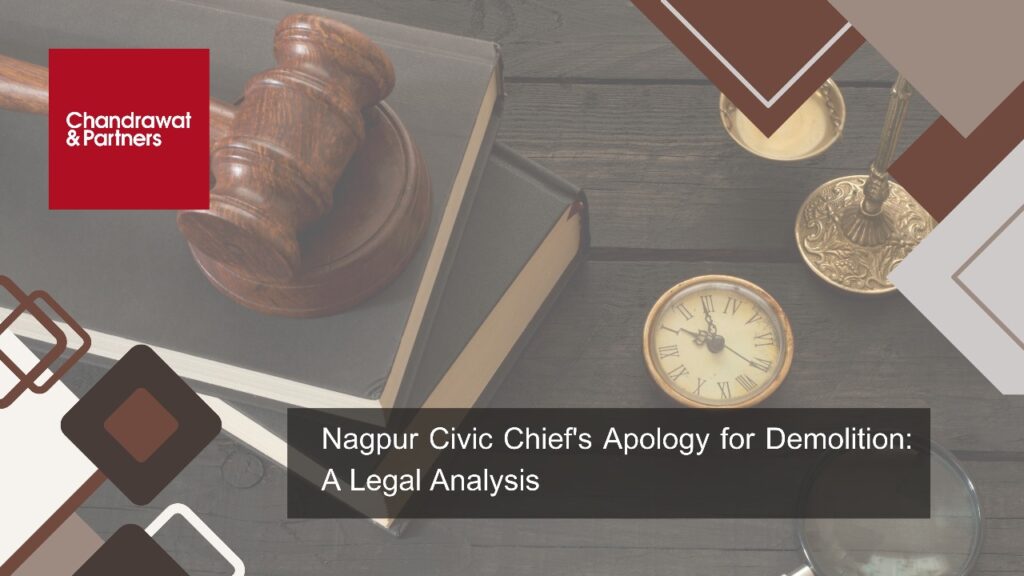Home > Recent Judgements > Nagpur Civic Chief’s Apology for Demolition: A Legal Analysis
April 16, 2025
Nagpur Civic Chief’s Apology for Demolition: A Legal Analysis
On April 16, 2025, the Nagpur civic chief issued an unconditional apology in court for the demolition of the residence of Fahim Khan, a key accused in the March 2025 Nagpur violence. This incident has reignited discussions on the legal and constitutional boundaries of administrative actions, particularly in the context of the Supreme Court’s stance on “bulldozer justice.”
Background of the Incident
The controversy began on March 24, 2025, when the Nagpur Municipal Corporation (NMC) demolished the house of Fahim Khan, the chief of the Minority Democratic Party (MDP), citing unauthorized construction and encroachment on municipal land. The property, registered in the name of Khan’s mother, was located on a plot leased by the Nagpur Improvement Trust, with the lease expiring in 2020. The NMC claimed that the building lacked an approved sanction plan and was constructed without proper authorization turn search.
Legal Framework and Supreme Court’s Guidelines
The Supreme Court of India has consistently emphasized the importance of due process in demolition actions. In its November 2024 verdict, the Court laid down specific guidelines to prevent arbitrary demolitions:
- Issuance of Notice: Authorities must issue a show-cause notice with a 15-day notice period, allowing the accused to respond.
- Inspection and Documentation: A detailed inspection report must be prepared, signed by two witnesses, and the demolition proceedings should be videographed.
- Transparency: The demolition report, including details of officials involved, should be displayed on a digital portal citeturn0search12.
These guidelines aim to ensure that demolitions are carried out in a transparent and lawful manner, safeguarding citizens’ rights and preventing collective punishment.
Court’s Response and Civic Chief’s Apology
Following the demolition, the Bombay High Court intervened, staying further demolitions and reprimanding the NMC for its actions. The Court highlighted that such demolitions, especially without following due process, violate constitutional principles and infringe upon citizens’ right to shelter.
In response to the Court’s observations, the Nagpur civic chief tendered an unconditional apology, stating that he was unaware of the Supreme Court’s directives on demolitions. This admission underscores the need for continuous legal education and awareness among administrative officials to prevent such violations in the future.
Implications and Moving Forward
This incident serves as a critical reminder of the delicate balance between maintaining law and order and upholding constitutional rights. While administrative actions are essential for public safety, they must be executed within the confines of the law, respecting due process and individual rights.
The Supreme Court’s guidelines on demolitions are not merely procedural; they are safeguards against potential misuse of power. It is imperative for all stakeholders, including civic authorities, law enforcement agencies, and the judiciary, to collaborate in ensuring that actions taken are just, transparent, and in accordance with the law.
In conclusion, the Nagpur demolition case highlights the ongoing challenges in implementing the Supreme Court’s directives on demolitions. It calls for a collective effort to uphold the rule of law, ensuring that no individual is deprived of their rights without due process. The civic chief’s apology, while a step towards accountability, must be accompanied by systemic changes to prevent recurrence of such incidents.
For more information or queries, please email us at
enquiries@chandrawatpartners.com




